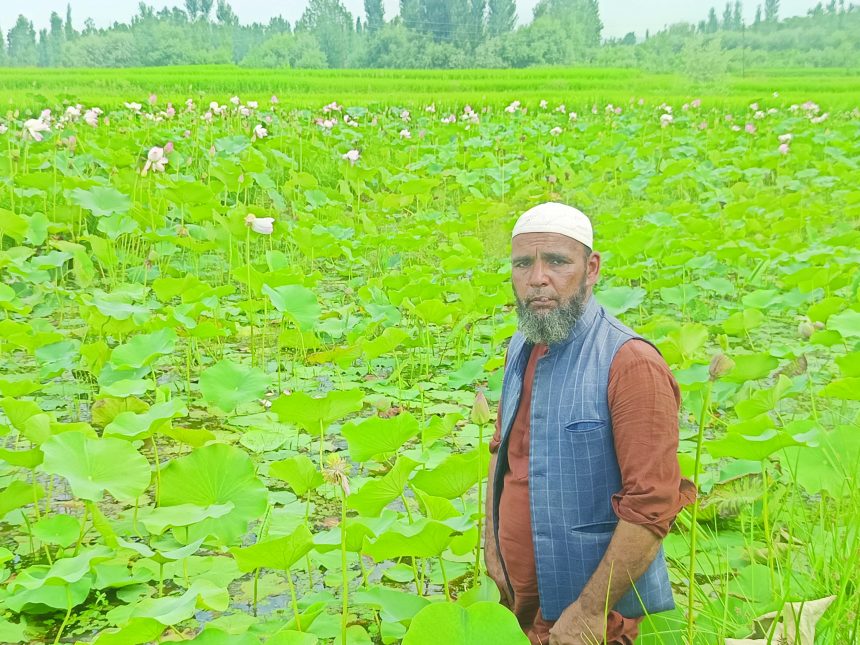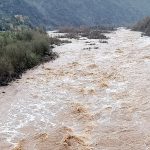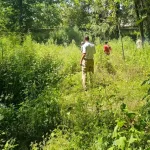In a unique agricultural innovation, a progressive farmer from Warihama village in Budgam district has successfully cultivated nadru (lotus stems) on land that remains waterlogged throughout the year, marking a first for the region.
Farooq Ahmad Bhat, 62, owns five kanals of farmland, over two kanals of which remained inundated year-round and yielded no crops. “It was very difficult to cultivate traditional paddy on this chunk of land, so I decided to experiment with nadru,” Bhatsaid.
The idea, he said, came from a friend who suggested that lotus stems thrive in marshy conditions. Encouraged by the suggestion, Bhat planted nadru in June last year, and this season, the crop is now in full bloom.
“The process is somewhat similar to paddy cultivation,” he explained. “We had to regularly clean algae and manage unwanted growth, but the results have been promising.”
The initiative has sparked local curiosity. “Every day, over a dozen people visit the field to take photos and videos among the lotus flowers. It’s become a new attraction in the village,” Bhat said, adding that many neighbouring farmers are keen to try it themselves after observing the harvest.
Bhat believes that such experiments highlight the need for crop diversification. “If the agriculture department promotes newer varieties like Mushkabudji (a traditional aromatic rice), and raises awareness about alternative farming, farmers’ income could rise significantly,” he said.
He also emphasised a return to organic farming, pointing to the health risks posed by contaminated produce. “At a time when substandard and chemically altered food floods the market, we must return to our roots and focus on growing healthy, clean food,” he said.








